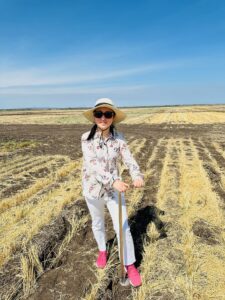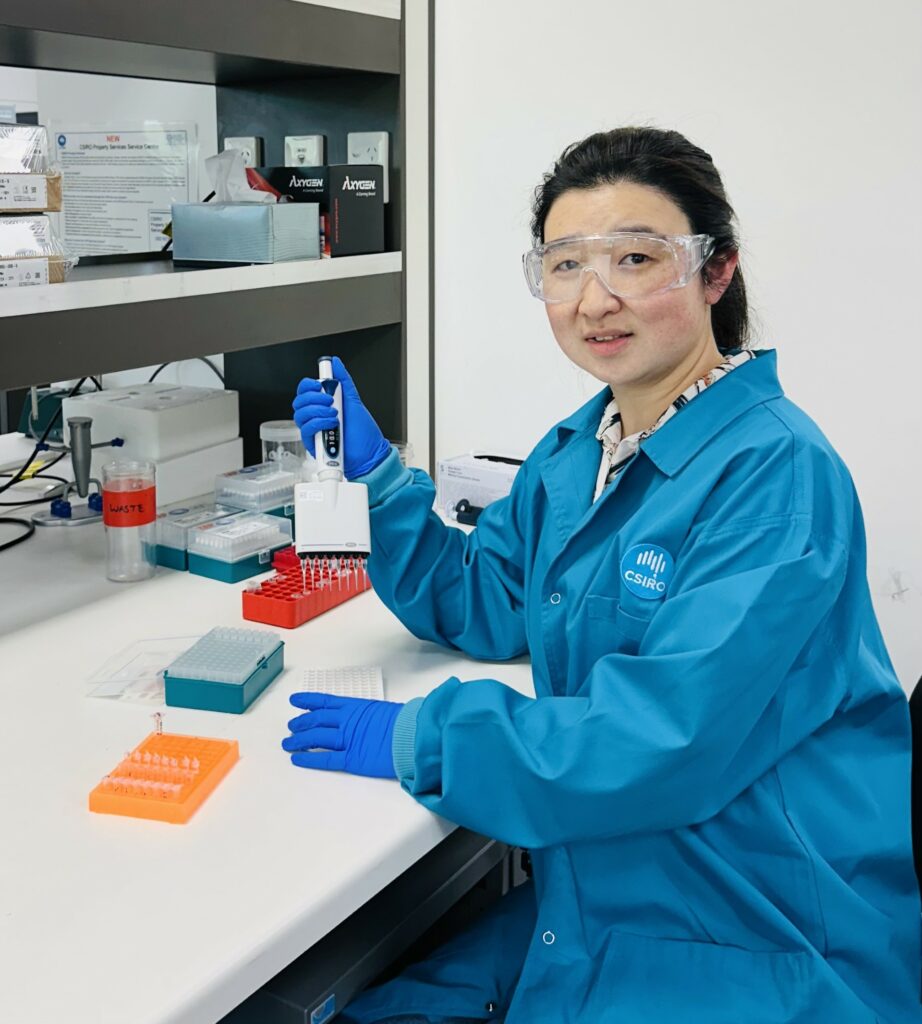Understanding the impacts of farming practices on the soil microbiome as a sustainable approach to crop production.
The challenge

Collecting soil samples from Pampas farming system in Toowoomba, QLD
Collecting soil samples from Pampas farming system in Toowoomba, QLD
Globally, farming systems are coming under mounting pressure to increase their crop yields to feed a growing population. Therefore, maintaining and enhancing soil biological function is integral for productivity and sustainability of agricultural systems including the opportunity to build soil carbon and overall ecosystem health. It is estimated that global agricultural soils have lost between 50-60% of historical soil carbon (Lal, 2004). This is concerning as soil organic carbon has a positive impact on crop productivity. Soilborne diseases are a major threat to crop productivity in Australia and worldwide. Soilborne diseases cause greater than $450 million per year of damage in a range of cereal crops in Australia. Furthermore, there is increasing support from consumers for produce that is grown using more sustainable practices, such as, the more efficient use of chemical inputs (fungicides, pesticides and fertilizers) and a reduced carbon footprint.
The capacity of the soil to cycle carbon and other nutrients, and make them available to crops, suppression of disease pathogens and their tolerance against abiotic stresses are dictated by the soil’s microbial community. CSIRO microbiome research has shown that understanding and altering the soil microbiome can potentially suppress disease, unlock nutrients such as carbon, nitrogen and phosphorus for crops with reduce chemical inputs or none at all. However, current understanding of how farming practices, such as crop intensity (the proportion of time plants are actively growing) and diversity (the mix of different plant species grown), impacts the soil-crop microbiome is limited. This presents an opportunity to develop sustainable farming practices through improved soil biological functional capacity and resilience.
Our response
CSIRO has been conducting on-going farming system experiments in New South Wales and Queensland, Australia with research partners GRDC. This research uses these long-term experiments to quantify how crop diversity and intensity impacts soil microbiomes and their key beneficial functions. The project is using multi-omic techniques to understand the structure (what microbes are present) and function (what the microbes are doing) of the soil microbial communities in response to these farming practices. These techniques give insights into microbial indicators of key biological functions that are relevant for improved nutrition, health and performance of crops, as well as the functional resilience of soil and overall system health.
This research will develop an understanding the limits and potential to improve our ability to better harness soil biological functional capacity and their resilience of soil systems in agricultural systems. This will lead to future methods on innovative farming systems and practices that can improve soil health, disease prevention and crop productivity using sustainable practices.
The team
Dr Qi Yang– CERC Postdoctoral Fellow, Functional Soil Biology
Dr Gupta Vadakattu – Senior Principal Research Scientist, Functional Soil Biology
Dr Lindsay Bell – Farming Systems Scientist, Future Farm Enterprises
Dr Mark Farrell – Principal Research Scientist, Biogeochemical Cycles
Dr Alan Richardson – Chief Research Scientist, Microbial Technologies

Conducting qPCR experiment in the molecular lab
Conducting qPCR experiment in the molecular lab
